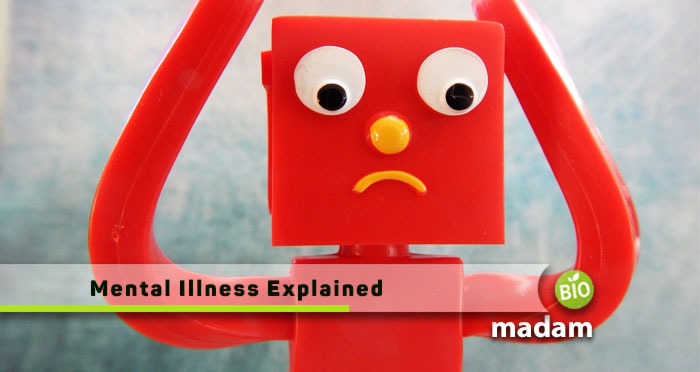Mental illness is a broad term that encompasses a wide variety of diseases and disorders. From OCD to schizophrenia, each type of mental illness can present unique challenges for both the individual suffering from it and their loved ones. It’s important to understand these different conditions to provide the best possible support system for those affected.
This blog post will provide an overview of five different types of mental illness Each section will include information on the symptoms, causes, and treatments for that particular. condition. So whether you’re looking to better understand your mental health condition or want to learn more about how to support a loved one, keep reading.
Anxiety
This is probably the most common type of mental illness, affecting 40 million adults in the United States every year. It can manifest itself in many different ways, including fear, racing thoughts, and difficulty sleeping. People with anxiety may also experience physical symptoms such as trembling, sweating, and a racing heart.
Depending on the type, it can be characterized by excessive worry about everyday things like finances, work, or family. It may also cause intense fear and avoidance of social situations, while panic disorder is characterized by sudden and recurring episodes of fear known as “panic attacks.” The exact cause of anxiety disorders is unknown, but they are thought to be a combination of genetic and environmental factors. Treatment typically includes medication and/or therapy.

Bipolar Disorder
This is a mental illness that causes extreme shifts in mood, energy, and activity levels. People with bipolar disorder may experience periods of depression, followed by periods of mania or hypomania. Mania is characterized by an elevated mood and high levels of energy and activity, while hypomania is a less severe form of mania. Maintaining relationships with bipolar girlfriends and boyfriends can be difficult.
Bipolar disorder can be very disruptive to everyday life, as the sudden mood changes can make it difficult to maintain relationships, hold down a job, or even take care of oneself. Some people with bipolar disorder may also experience delusions or hallucinations. The cause of bipolar disorder is not fully understood, but the most recent studies are finding links to both genetic and environmental factors. There is no cure for bipolar disorder, but there are treatments that can help to manage the symptoms and maintain stability.
Depression
Depression is more than just feeling sad or “down in the dumps.” It’s a serious mental illness that causes a persistent low mood and loss of interest in activities, along with other symptoms like fatigue, changes in appetite, sleep disturbances, and difficulty concentrating. People with depression may also have thoughts of self-harm or suicide.
It can sometimes be very hard to diagnose depression, as the symptoms can be similar to those of other conditions like bipolar disorder. Depression can be caused by several things, including genetics, brain chemistry, and life events. It is often treated with medication and therapy. However, it is important to note that depression can be a difficult illness to treat, and it may take some time to find the right combination of treatments that work for you.
Schizophrenia
Schizophrenia is a serious mental illness that affects about 1% of the population. It is characterized by hallucinations, delusions, disordered thinking, and problems with emotion and behavior. People with schizophrenia may hear voices or see things that are not there. They may believe that other people are out to get them, or that they are being controlled by outside forces. Schizophrenia can make it very difficult to function in everyday life.
When it comes to causes and treatment, it’s important to note that schizophrenia is different for everyone. There is no one-size-fits-all explanation or cure, but it is often best to combine medication and therapy. Schizophrenia can be a lifelong condition, but with proper treatment, many people with the disorder can lead productive and fulfilling lives.
Eating Disorders
Eating disorders are a type of mental illness that is characterized by an abnormal relationship with food. People with eating disorders may have a distorted view of their bodies, and they may obsess over their weight and appearance. This can lead to dangerous behaviors like the severe restriction of food intake, binge eating, or purging (self-induced vomiting or the use of laxatives).
Eating disorders are often seen as a problem with body image, but they are much more complex than that. Eating disorders can be caused by a combination of genetic, psychological, and social factors. And while there is no one-size-fits-all cure, treatment typically includes a combination of medication, therapy, and lifestyle changes.
Obsessive-Compulsive Disorder (OCD)

OCD is a mental illness that is characterized by obsessions (recurrent, unwanted thoughts) and compulsions (repetitive behaviors or mental acts that are carried out in an attempt to relieve the stress caused by the obsessions). People with OCD may have obsessive thoughts about germs or contamination, and they may feel the need to wash their hands repeatedly or avoid touching door handles. OCD can be a very debilitating condition, as it can take up a lot of time and energy, and it can interfere with work, school, and personal relationships.
Cognitive-behavioral therapy (CBT), which is a type of therapy that helps to change the way you think and behave, is often used to treat OCD. Not only can CBT help to reduce the symptoms of OCD, but it can also teach you how to manage and cope with the condition. In some cases, medication may also be prescribed.
While there are many different types of mental illness, these are some of the most common. If you think you may be suffering from a mental illness, it’s important to seek professional help. A mental health professional can assess your symptoms and provide you with the treatment that you need. Remember, there is no shame in seeking help, and treatment can make a world of difference.

Hi, they call me Jenna, and I am also known for achieving a gold medal during my Ph.D. in science life. I always had a dream to educate people through my utmost writing hobby. So, I chose this blogging path, and Biomadam gave me this opportunity to present for them. I now stand to entertain you. Continue reading my articles & discuss if you’ve any confusion through the comment section below.

